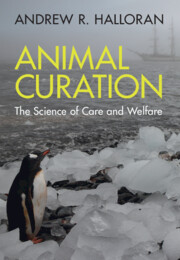Book contents
1 - Defining Thriving
from Part I - Thriving
Published online by Cambridge University Press: 20 November 2025
Summary
There exists a multifaceted concept of thriving as opposed to mere survival in animal care. The chapter begins by establishing a foundational understanding of what it means for animals to truly thrive, emphasising that thriving encompasses not only physical health but also psychological, emotional, and social well-being.
The chapter further explores the various aspects of thriving. It discusses physical thriving through adequate nutrition and exercise, psychological thriving through mental stimulation and problem-solving activities, emotional thriving via positive interactions and stable environments, and social thriving through healthy relationships within species groups.
Additionally, the chapter introduces Vicino and Miller’s Five Opportunities to Thrive, which provide a structured approach to evaluating and enhancing animal welfare. These opportunities include ensuring safety, facilitating natural behaviours, promoting positive states, preventing negative states, and fostering growth and development. This framework serves as a guide for care technicians to create environments that support all dimensions of animal welfare.
Overall, this chapter sets the stage for a deeper understanding of animal welfare, advocating for a holistic approach to animal care that goes beyond basic needs to ensure animals lead fulfilling lives.
Keywords
Information
- Type
- Chapter
- Information
- Animal CurationThe Science of Care and Welfare, pp. 21 - 37Publisher: Cambridge University PressPrint publication year: 2025
